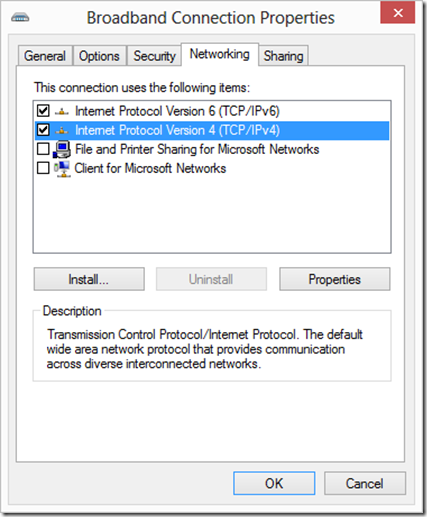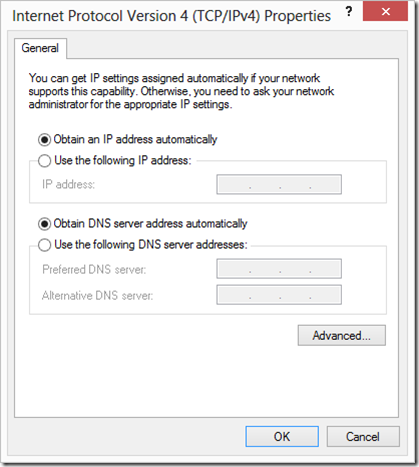A DNS(Domain Name Server) lookup is a query sent by the user from their browser, IM or email client to a DNS server to convert a particular domain name into its corresponding IP address. In other words, when you type a web address in the address bar of the browser or sent a login request from your IM or an email client, the domain name you requested for will be converted into its respective IP address by the DNS server.
Many organizations and colleges use to block some websites by blocking your DNS queries to that domain name or by redirecting to them to a page that shows ‘The page can’t be loaded or blocked’.
The most annoying thing social media addicts can’t tolerate is the blocked Facebook at work place and college. It actually happens when network administrators block www.facebook.com from being sent to the DNS server. The request sent by you to access facebook.com should go through local DNS server which is blocked. You have two options to get through the situation, to type IP address in various formats or to change the DNS server.
However, in case if your organization has blocked websites by their IP addresses, then you will not be able to access the requested website.
The second option, changing the DNS servers would work well in such cases. More specifically using public DNS servers would help you unblock the websites and give you full access.
Using Public DNS servers instead of local DNS servers bypasses all the restrictions on web. Before we go through the set up process, I would like to give you a list of best public DNS server sites along with addresses below:
Note: The author of this article or amfastech.com does not encourage using Facebook at workplaces or colleges. We are not responsible if your loose your job or suspended from college by doing this trick. This article is written to educate & demonstrate people about the public DNS systems and their advantages only.
You local DNS server will block all the social media and video websites on the web, where as public DNS sever will not block any legal website like Facebook, YouTube, Twitter and so on. If you could replace the local DNS severs to public DNS servers, you could unblock the world you wish to access.
Choose a public DNS server you wanted to connect to before setting it up.
Step 1: Go to Control Panel > Network and Internet > Network and Sharing Center. Click on Adapter Settings located on the left pane.
Step 2: Right click on the connection that you use, click Properties and then click on the Networking tab.

Step 3: Select Internet Protocol Version 4(TCP/IPV4) and click Properties button.
Step 4: Under the General tab, you will see you network DNS being set to detect automatically.

Step 5: We need to change the DNS only, so don’t disturb IP address set up above. Select Use the following DNS server addresses and enter the following DNS sever addresses and click Ok.

Step 6: The public DNS setup is done. You need to disconnect and reconnect to the network. Your connection is now configured to the public DNS servers of Google. You may also use any public DNS server of your choice.
Now try accessing the blocked websites from your browser and you will notice them unblocked and given full access again.
Public DNS servers have certain advantages other than unblocking the web.
Many organizations and colleges use to block some websites by blocking your DNS queries to that domain name or by redirecting to them to a page that shows ‘The page can’t be loaded or blocked’.
The most annoying thing social media addicts can’t tolerate is the blocked Facebook at work place and college. It actually happens when network administrators block www.facebook.com from being sent to the DNS server. The request sent by you to access facebook.com should go through local DNS server which is blocked. You have two options to get through the situation, to type IP address in various formats or to change the DNS server.
However, in case if your organization has blocked websites by their IP addresses, then you will not be able to access the requested website.
The second option, changing the DNS servers would work well in such cases. More specifically using public DNS servers would help you unblock the websites and give you full access.
Using Public DNS servers instead of local DNS servers bypasses all the restrictions on web. Before we go through the set up process, I would like to give you a list of best public DNS server sites along with addresses below:
| Google DNS | 8.8.8.8 | 8.8.4.4 |
| Open DNS | 208.67.222.222 | 208.67.220.220 |
| DNS Advantage | 156.154.70.1 | 156.154.71.1 |
| VisiZone | 74.50.55.161 | 74.50.55.162 |
| Norton DNS | 198.153.192.1 | 198.153.194.1 |
| DNS Resolvers | 205.210.42.205 | 64.68.200.200 |
Note: The author of this article or amfastech.com does not encourage using Facebook at workplaces or colleges. We are not responsible if your loose your job or suspended from college by doing this trick. This article is written to educate & demonstrate people about the public DNS systems and their advantages only.
You local DNS server will block all the social media and video websites on the web, where as public DNS sever will not block any legal website like Facebook, YouTube, Twitter and so on. If you could replace the local DNS severs to public DNS servers, you could unblock the world you wish to access.
Setting up the public DNS
A computer that is connected to a network would automatically obtain the DNS server address that it needs to connect to, which usually belongs to and controlled by your network provider. You need to replace this local DNS server address with public DNS server address.Choose a public DNS server you wanted to connect to before setting it up.
Step 1: Go to Control Panel > Network and Internet > Network and Sharing Center. Click on Adapter Settings located on the left pane.
Step 2: Right click on the connection that you use, click Properties and then click on the Networking tab.

Step 3: Select Internet Protocol Version 4(TCP/IPV4) and click Properties button.
Step 4: Under the General tab, you will see you network DNS being set to detect automatically.

Step 5: We need to change the DNS only, so don’t disturb IP address set up above. Select Use the following DNS server addresses and enter the following DNS sever addresses and click Ok.
- 8.8.8.8
- 8.8.4.4

Step 6: The public DNS setup is done. You need to disconnect and reconnect to the network. Your connection is now configured to the public DNS servers of Google. You may also use any public DNS server of your choice.
Now try accessing the blocked websites from your browser and you will notice them unblocked and given full access again.
Public DNS servers have certain advantages other than unblocking the web.
- Public DNS servers are faster than the local DNS servers and will have large cached databases.
- Corrects typo errors in the address.
- Includes strict filtering and protects against phishing attacks.
- Uses shortcuts instead of using full domain names.

Post a Comment